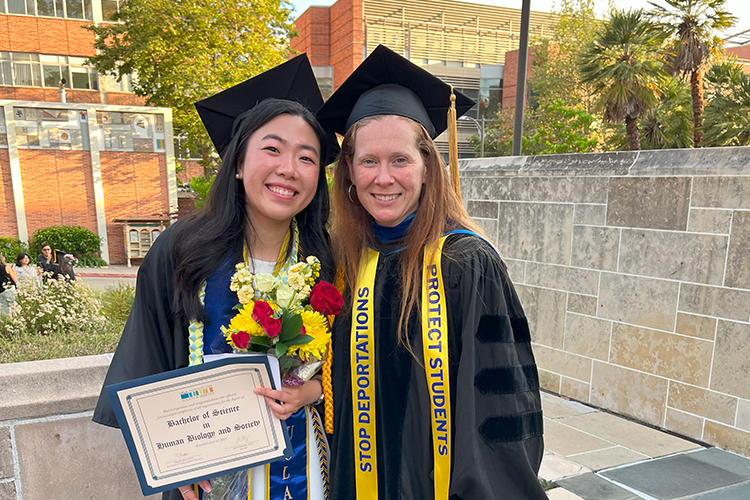
We would like to recognize the outstanding achievement of Anne Gabrielle Go (Gabbie), who was recently awarded the Dean’s Prize for Excellence in Research and Creativity: Humanities, Arts, and Social Sciences for her project “Assessing a Role-playing Game for Public Health Decision Making” under Michelle Rensel (ISG Faculty) supervision.
Gabbie decided to study medicine after being inspired by her father’s dedication to learning his own patients’ stories. This evolved into a passion for implementing interdisciplinary improvements in healthcare through centering patient perspectives, which then guided her to pursue a Human Biology and Society B.S. with a Public Health minor at UCLA, graduating in 2025. Gabbie’s intergenerational church community exemplified the power of collaboration across age groups, which encouraged her to mentor younger pre-med students while seeking wisdom from older patients at the VA hospital. She hopes to leverage her experience with diverse perspectives to bridge healthcare gaps and foster meaningful connections between patients and the broader health system.
Gabbie’s fascination with embracing varied viewpoints fueled her to serve as an undergraduate writer and researcher for a “Reacting to the Past” style role-playing game focused on California’s 2017 chlorpyrifos pesticide regulation decision, designed for Dr. Patrick Allard’s SocGen 105B course. Working alongside faculty mentors and another undergraduate researcher, she helped to develop materials for this pedagogical intervention (including the gamebook and character role sheets) to ensure educational effectiveness. Following the game’s implementation, Gabbie participated in a research project under Dr. Rensel’s mentorship to evaluate its pedagogical impact. She assessed responses from pre- and post-game surveys by analyzing quantitative data using SPSS, revealing statistically significant improvements in students’ knowledge of pesticide regulation, critical thinking abilities, and core skills, including public speaking and writing. Her research demonstrated that role-playing simulations were particularly effective for knowledge integration and skill enhancement, with students showing substantial improvements in perspective-taking capacities and understanding of scientific complexity at policy interfaces. This work provided evidence supporting game-based learning approaches in interdisciplinary science education, demonstrating how structured role-playing effectively bridges abstract scientific principles in their socio-scientific contexts.
Please join us in congratulating Gabbie on this remarkable achievement and in celebrating the impact of her project.
